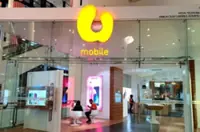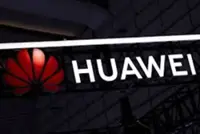The UK ranks 53rd in the world for median download speed, according to connectivity intelligence firm Ookla. — AFP Relaxnews
LONDON: By approving a merger of Vodafone and Three in the UK, the country has secured a commitment from the mobile phone operators to invest billions of pounds on 5G connectivity.
The UK ranks 53rd in the world for median download speed, according to connectivity intelligence firm Ookla.
Its mobile network is the least competitive in the G7, second only to Germany, which is Vodafone’s main market.
The UK’s mobile network is "increasingly comparable to that of smaller economies in Eastern Europe, rather than to its wealthier neighbours in Western and Northern Europe", said Luke Kehoe, European industry analyst at Ookla.
So, how did the UK get left behind in the push for faster mobile connection?
Huawei ban
In 2020, Britain banned Chinese giant Huawei, a major supplier of equipment for mobile telephone networks, amid fears over cybersecurity and intense pressure from Donald Trump during his first US presidency.
The move forced operators to remove the Huawei equipment from 5G networks offering faster download speeds by 2027.
This huge undertaking delayed the rollout of 5G by two years and cost around £2bil (RM11.27bil), according to government estimates.
British telecoms giant BT has already spent an extra £500mil (RM2.81bil) as a result of the ban.
The fifth-generation successor to 4G technology offers quicker transfers of data.
Covid impact
With the Covid pandemic breaking out around the same time as the Huawei ban, operators were forced to focus on fixing home networks rather than their mobile equivalents, slowing down the capacity for wider 5G rollout.
George Elliott, policy and communications director at trade association Mobile UK, said strict pandemic restrictions in the UK impacted also the ability of technicians to go out and build the networks.
Lack of investment
The government’s target is for all populated areas of the UK to have standalone 5G coverage by 2030.
Estimates suggest "that optimal 5G coverage by 2030 could require up to £34bil (RM191.63bil) – far beyond current commitments", said Matt Britzman, an analyst at stockbrokers Hargreaves Lansdown.
Vodafone and Three "have committed to invest £11bil (RM62bil) to create one of Europe’s most advanced 5G networks", the pair said Thursday.
One unnamed mobile operator in the sector said it regretted the pressure placed on it by governments to launch 5G before it was fully ready, with operators instead having to rollout a more limited, non-standalone version.
Regulation
Britzman also notes that the rollout of infrastructure in the UK had been slowed by "legal disputes over tower installations and complex planning laws".
Operators cite these regulations, which they say give too much importance to local players, as the number one cause of delays in 5G. – AFP





